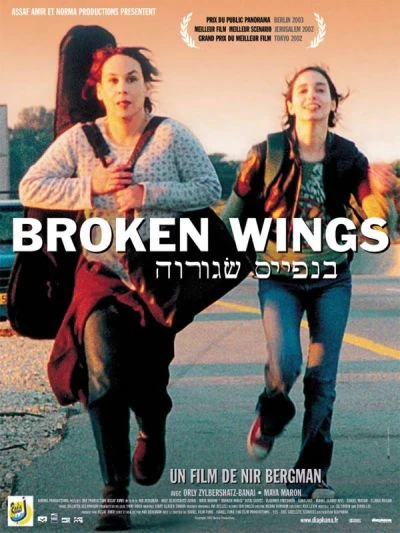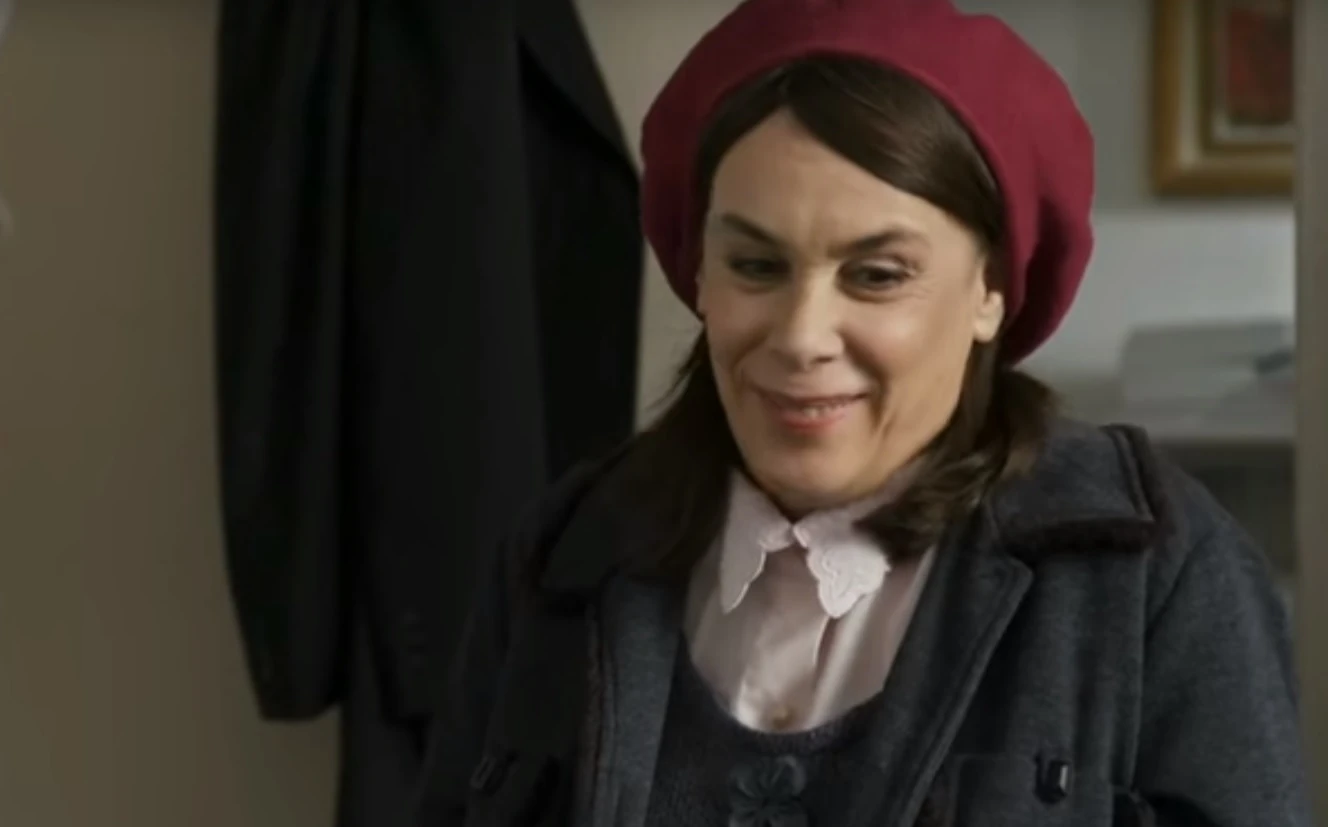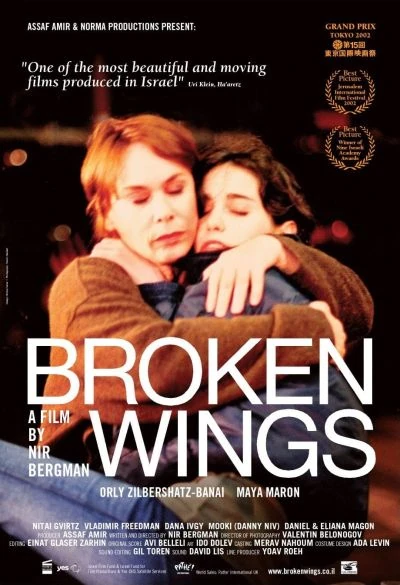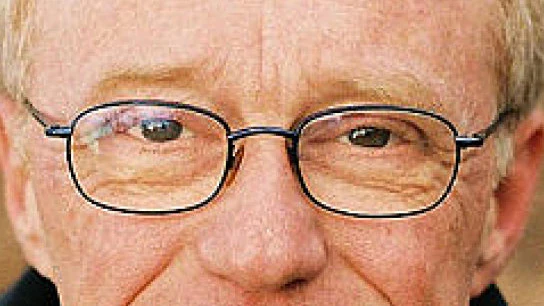כנפיים שבורות
Broken Wings (2002)

While watching the films on the Israeli/Jewish side of this project, I’ve got one little side-hustle going on. I’m collecting actors who play major and supporting roles in the TV series Shtisel. Of course Israel is a small country, so it was inevitable that they would turn up in these films. It feels so far like they’ve been in something like 30-40% of the films I’ve watched. If you’ve never seen Shtisel, WATCH IT. It’s easily one of the best things to come out of Israel in these troubled decades.
If you want to watch a searing investigation of the deep fissures between secular and religious Jews in Israel, watch Autonomies (good luck finding that with English subtitles, though - I still haven’t - there’s a dubbed version, but it’s unwatchable). *Shtisel *is not that kind of series. There’s no politics whatsoever (apart from the usual internal politics within the family and the wider religious community), and encounters with secular people are limited to only one leading character, the Rabbi’s son Akiva. Michael Aloni, the actor who plays that character, is one of the few who hasn’t turned up on my film list yet, but you might recognise his face from a pretty trashy series (shame on him - חבל עליו) called [The Beauty Queen of Jerusalem](https://www.imdb.com/title/tt12940732/? ref_=nv_sr_srsg_0_tt_5_nm_3_q_beauty%2520queen%2520of%2520jer), currently available on Netflix. You may assume that I won’t be mentioning that one again, however. I’m pretty sure that I didn’t even get to the end of the first episode, and the chances are that if you like that series you won’t like much about this blog. Shtisel, however, you really should see if you haven’t. It was on Netflix, but no longer at the time of writing, in the UK at least. Not sure where you’ll find it.

Orly Silbersatz Banai, the lead actress in Broken Wings, played one of the loveliest characters in Shtisel - namely Aliza, who was Reb Shulem Shtisel’s secretary in the first and second seasons of the series. If you’ve seen the series, but forgotten her, this is the one that he *should *have married, before getting involved with that irritating matchmaker lady that he’s courting in the latter part of the second series (that actress is also going to turn up in a couple films referenced on this blog, by the way). In this movie Banai is playing someone very different, but that lovely smile is the same. Here she plays Dafna, a midwife who is not even barely holding it together after the sudden untimely death of her husband. She’s taking her grief out on her older daughter, Maya, who has been forced to become the effective head of household. Maya is a gifted musician, but she is struggling to develop and take her opportunities amidst the stress and the guilt-tripping that she’s getting from her mother. The other three kids are all feeling it in one way or another. The older brother. Ya’ir, has dropped out of school, and fallen into nihilism and solipsism. If I tell you what’s going on with the two youngest ones I’ll end up giving away a big spoiler, so watch and find out.
The film is set in Haifa, Israel’s third city, which has always been thought of as one of the more normal places in Israel, as far as “normal” goes anyway in that country. It’s more mixed and more secular than either the Greater Tel Aviv area (taken as a whole) or Jerusalem. Buses mostly run on Saturdays, and the admittedly not so large Arab minority lives relatively harmoniously next to the Jewish majority. Probably not so harmoniously at the moment, I’m sure, and that may indeed be a very outdated view of the place from someone who hasn’t visited for a long time. Since the only time that I spent in Haifa was a very quick weekend trip, I can’t say too much more than that, other than that its reputation for tolerance and diversity includes the fact that it is home to the Universal House of Justice, the world centre of the Baha’i faith.
The English-lanugage Wikipedia entry on this film is rather short. No big deal, but one thing that it does is to cite the Variety magazine review of the film, which calls it “a poignant film”, and:
a strongly emotional experience despite its tendency toward cryptic dramatics
A bit of a weird one, that - I’m going to say that I have no idea what on earth that last bit was supposed to mean. Maybe the critic was just complaining about the fact that you have to wait a bit to find out what was going on before the events shown in the film. It’s called “suspense”, and it’s quite an important aspect of drama. So I’m sorry to disappoint any Gen Z or Millenial readers - I’m going to respect the cryptic dramatics, and will give no spoilers here, other than to say that Valentin, for anyone who doesn’t pick his accent, is Russian (or Belarussian? or Ukrainian? - who knows? - that’s for another blog project). That’s not actually any kind of spoiler - just something that you might wonder about whilst watching, but would have no idea if you haven’t got the ear for that kind of thing. Meantime, have a look at the trailer up here on the right, and decide for yourself how cryptic the acting appears.
I’ve said nothing up until now about which Arab film I’m pairing this one with. I hope that I’ve already proved my good faith about trying to look at things completely 50/50, and I won’t necessarily labour the point every time in future posts. In any case, there’s no efficient way to map one Israeli film onto one Arab film, or vice versa, depending where you start. Why would I even try to do such an absurd thing? Nonetheless, I’m going to try to do this for a few weeks at least, since that’s where the original concept came from, and then I’ll accept the fact that that the initial concept must inevitably break down a bit. Continuing with that concept for the time being, however, this film is paired up with Costa Brava, Lebanon. In both cases we’re talking about an ostensibly normal middle class family which has been thrown into turmoil by an external shock. Additionally, there’s the musical connection. Soraya, the mother of the Lebanese family, is also a musician, already famous in her case.
But the most haunting connection between the two is that Haifa is little more than a hundred miles from the scenes of the Lebanese film, which I take to be in the hills outside, and not too far from Beirut. In practice, the distance is of course a lot more than that. You can’t just hop over that border for a shopping trip, and in fact I found myself thinking quite a lot about this while watching Costa Brava, Lebanon. The role of the father of the family, Walid, is played by Saleh Bakri, who we’ve already seen in Wajib, and who we’ll be seeing again many times. Bakri was born in Jaffa, meaning that he has (I presume) Israeli citizenship. I don’t know where he lives right now (I need to find out a bit more about him), but I’m just going to say that if he was trying to get from Jaffa to Beirut to make that film, the quickest way for him to get there would probably have been to fly to Cyprus and from there to Beirut (definitely don’t try going via Syria!). I would also guess that it wasn’t easy for him, as an Israeli citizen and a Palestinian, to get permission to work in Lebanon. And what I’m quite certain about is that he must have faced a LOT of questions coming back into Tel Aviv.

There is a slightly more significant distance in time between the two films. Broken Wings was made in 2002, and Costa Brava, Lebanon much more recently, in 2021. Neutrals could have been forgiven back in 2002 for believing that we didn’t need to end up where we are now. While it is true that the Second Intifada was already raging when this film was released, the assumption remained that everyone would eventually get tired, as happened in Northern Ireland, and try again to figure out a way to live together, or next to each other. Unfortunately that is not what has happened. A gentleman called Benjamin Netanyahu (AKA, at one time, Ben Nitay, WTF) has been in charge for more than half of the last twenty years, making it worse and worse every year he’s had the power to do so. They’ve built a wall, and tried to pretend that that can keep the world out forever. They’ve withdrawn from Lebanon, gone back to war there, withdrawn again, withdrawn from Gaza and fought so many little wars with Gaza that I really stopped counting a while ago (though obviously we are all counting this one).
Not only has Benjamin Netanyahu done everything he can to prevent any accommodation with the Palestinian people, but he’s also done many of his own people no favours at all. There’s a moment in Broken Wings where Maya has a conversation in the classroom with her teacher about the “free economy”, saying that it’s done nothing to help her mother and people like her in caring professions. I guess that this is a reference to the liberalisation of the Israeli economy in the 1990s, away from the socialism stereotypically associated with the kibbutz movement, which had been left largely untouched even in the fifteen years of early Likud dominance from 1977 to 1992. That was going going gone by the time this film was made. Netanyahu had already let rip a little bit during his three years in charge from 1996 to 1999. To be fair to him (not that he’s done anything much to deserve my fairness) the preceding Labour government of Rabin and Peres had already started the process of liberalisation, but in their case this was done in the hope and anticipation that genuine peace with the Arab World would lead to economic opportunities for which Israel would need to be ready. And when it comes to peace, BIBI DON’T CARE! There are plenty of tech billionaires in Israel today, and people like Dafna have been left behind. History will judge if Bibi truly had the interests of the Jewish people in his heart, or if he was only in it for himself. I know what I think about that.
I’m ranting, sorry. One last thing about the pairing of films. It turns out that even that is a lot more problematic than I might initially have hoped. Having said earlier that I need to find out a bit more about Saleh Bakri, I’ve just understood from a quick look at the Hebrew-language Wikipedia page about him (the Arabic I cannot read, unfortunately), that he essentially withdrew in 2013 from any future participation in the Israeli film industry, as long as the kind of government that exists right now in Israel continues to exist. That’s fair enough, of course, and now I’m more interested to analyse quite closely the one film on my list which is on the Israeli side of the wall/fence, and in which we do see Bakri. The name of the film is The Band’s Visit, and I haven’t watched it yet; but I’ll make sure to have a good look at it soon, since Bakri’s career seems already to have become a subplot of this project, along with the Shtisel action figure collection.
Maybe this is an appropriate place to finish for now, noting how two films which have a great deal in common, and which take place so close to each other, can also belong to two such opposed and alternate universes. Next week’s (next week, or whenever soon is) posts will be from the northern side of that tragic border, looking at how that story is told from each side (and there will surely be more than two sides!).
Apropos nothing else, a Shtisel Addendum: Maya Maron, who plays Maya in the movie, also has a supporting role (a smaller one) in the series, as Akiva’s fellow artist Hadassah, who befriends him in the second series and with whom nothing happens in the end. You’re expecting it (you know…… “it”), but while staying at her house after one of his arguments with his dad, he gets into a paint-off session with her, and horrifies himself by getting so focused on the secular activity that he forgets to put on tefillin 😨😧😱 So that’s the end of that.
Addendum to the Addendum: I’ve just noticed that the film poster at the top of the post has what must surely be a typo. It says כנפים שגורות, (kenafayim segurot) as opposed to כנפים ש,בורות, (kenafayim shevurot). It’s hard to imagine that that’s anything other than a typo, as it just doesn’t make any sense. שגורות would mean “routines”, so what do we get from that? Wings Routines? Paul and Linda doing the domestic chores? Anyway, the great Google MacGoogle Translate God on the Cloud refuses to entertain the idea that כנפים שגורות would mean anything much. Only if there’s some crazy complicated kabbalistic interpretation might it make sense, but since this is Haifa, and not Jerusalem or Tsfat/Safad, and it’s not a matter of making sense of God’s words, I’ll stop there. Once again, this was very much apropos nothing.
